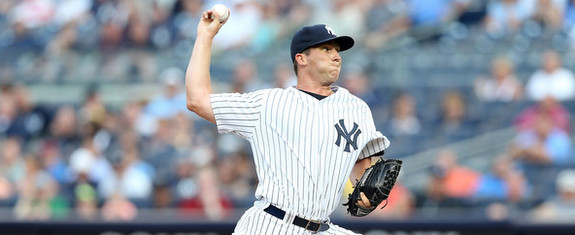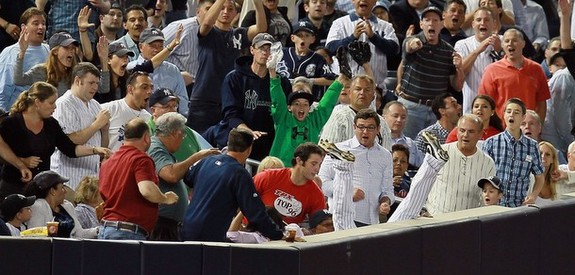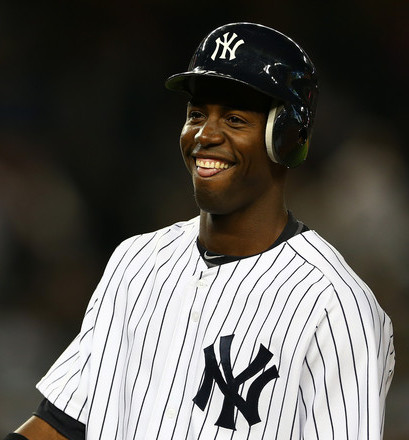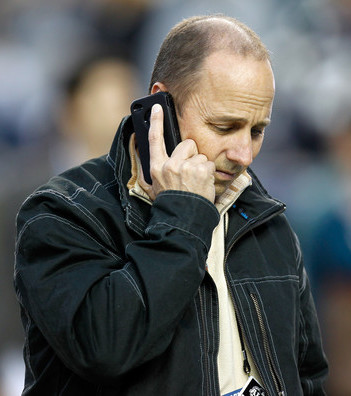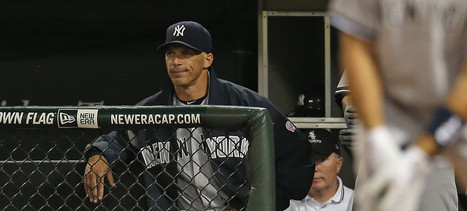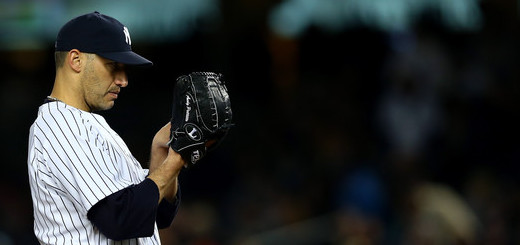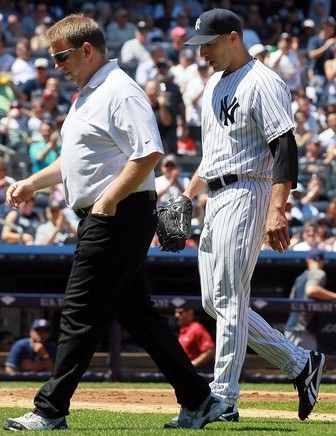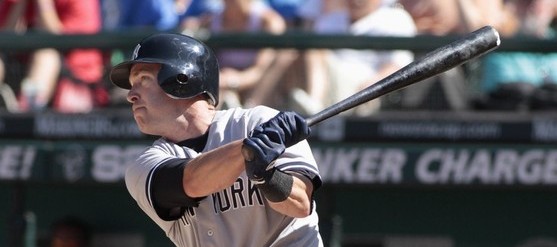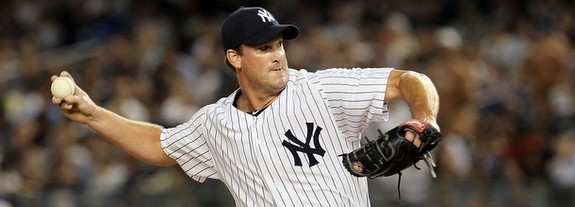The 2013 season is over and we’ve had a week to catch our breath. It’s time to review pretty much all aspects of the year that was, continuing today with the team’s strong record in one-run games.
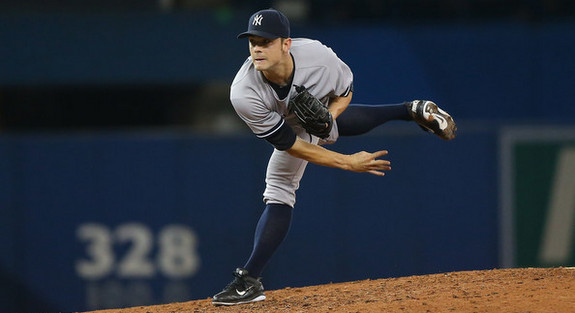
One year ago, the Orioles snuck into the postseason thanks in part to a historic record in one-run games. Their 29-9 (.763) record in one-run contests was the best in baseball history, yet we spent all summer expecting them to crash back to Earth. It never happened. One-run games are highly volatile just because they’re so tight — one weird bounce or bad call by an umpire can change everything. Most teams walk the .500 line in one-run games.
The 2013 Yankees were the 2012 Orioles when it came to games decided by one run, though not as extreme. They didn’t make history or anything like that, but they did have baseball’s best record in those such games at 30-16 (.652). Winning those close games definitely helped them stay in the playoff race far longer than you would have otherwise expected. I think we can both admit this club had little business being within shouting distance of a playoff spot heading into the final week of the regular season.
The 46 one-run games were the fourth fewest in baseball and right in line with New York’s last few seasons. This wasn’t some kind of anomaly; they played 47 one-run games last year (.468 winning percentage), 45 the year before (.467), and 39 the year before that (.513). The Yankees didn’t play substantially more (or fewer) one-run contests in 2013, yet their winning percentage in those games went up while their overall winning percentage (across the full 162 games) came down. Outside of those one-run games, the Yankees went 55-61 (.474) and that sucks.
There’s an awful lot that goes into being successful in one-run games, with the most obvious being bullpens. When you have David Robertson in the eighth and Mariano Rivera in the ninth, those one-run cushions in the late innings tend to turn into wins. Bullpens are absolutely a factor, but there has been quite a bit of research showing their impact on one-run contests is generally overstated. The rest of the team usually has to make it a one-run game before the bullpen comes into play. The game situation controls reliever usage, not the other way around.
Offensively, the Yankees actually fared quite a bit worse in “close and late” situations this year than they did in previous years. “Close and late” situations are defined as plate appearances in the seventh inning or later where they are tied, ahead by one run, or have the tying run on deck. Here’s a quick breakdown of the team’s “close and late” performance in recent years:
| PA | AVG | OBP | SLG | OPS+ | HR | BB% | K% | BABIP | |
|---|---|---|---|---|---|---|---|---|---|
| 2013 | 1,002 | 0.227 | 0.299 | 0.348 | 91 | 20 | 8.6% | 24.6% | 0.290 |
| 2012 | 954 | 0.261 | 0.342 | 0.451 | 132 | 40 | 8.5% | 20.6% | 0.294 |
| 2011 | 925 | 0.221 | 0.316 | 0.348 | 95 | 21 | 11.1% | 20.3% | 0.261 |
| 2010 | 857 | 0.251 | 0.336 | 0.392 | 110 | 28 | 11.6% | 21.8% | 0.286 |
So the winning percentage in one-run games got better while the offense was terrible in the late innings of close games. Okay then. I mean, they had a lot of bad hitters on the roster this summer, so it’s no surprise they didn’t hit much late in the game. They didn’t hit much overall. Anecdotally, the Yankees did seem to score a bunch of runs early in games this year before the offense went to sleep in the middle innings, but the stats don’t really bear that out — they scored 221 runs in innings 1-3, 224 runs in innings 4-6, and 205 runs in innings 7+. This isn’t some kinda weird run distribution thing.
Without re-watching each game and figuring out exactly what happened, it’s close to impossible to explain why a team was successful in one-run games. Heck, Mariano Rivera blew seven (!) saves this year and five of them were one-run leads. They actually came back to win two of those five (by one run, of course), but the Yankees could have very easily been 31-15 (.674) or 32-14 (.696) in one-run contests had Rivera not had what amounts to a down season for him. The Bombers had baseball’s best record in one-run games this year for many reasons, and whether those reasons continue next year is a mystery. After that historic record last summer, the Orioles had the fifth worst record in one-run games this year (20-31, .392). The magic isn’t guaranteed to last, but it’s not guaranteed to disappear all together either.
